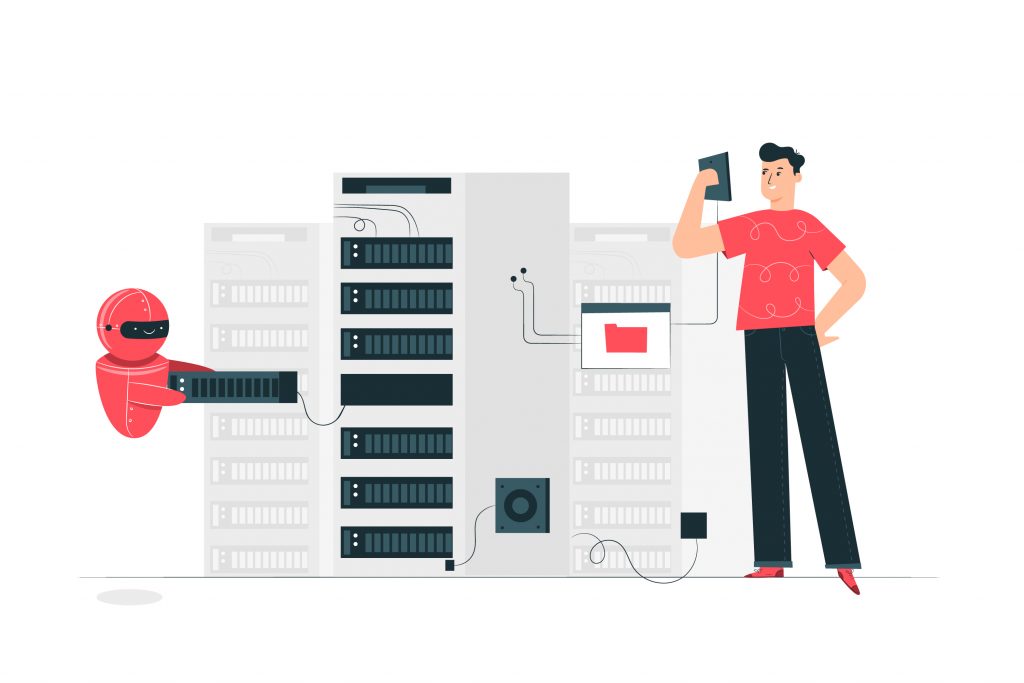What Is A Dedicated Server?
Imagine renting an exclusive computer housed in a strategic data center. This exclusivity means that, you can have your very own physical server that is dedicated to your needs. A dedicated server is unlike a Virtual Private Server (VPS) or a shared hosting, that requires you to share the same physical server with other users. The advantages of having your own dedicated server are:
- Higher bandwidth for an improved website performance,
- Highly secured data,
- Protection against cyber-attacks and malware invasions,
- Flexible scalability and customization,
- Complete use of server resources catering only to your company
- High-end server performance.
When Should You Get A Dedicated Server?
If you notice that your company website is getting more visitors every day, but the page loading speed is getting slower, it’s the right time to upgrade to a dedicated server.
Other than giving your clients a better website user experience, a dedicated server can do so much more! It hosts your communications tools – like email accounts, ERP software and CRM software. You can also host your company data in a dedicated server. It’s layers of data security and protection will help prevent hackers, viruses and malicious malware from taking your valuable assets away.

4 Features You Must Look For In A Dedicated Server
This is the basics of how to choose a dedicated server that best suits your needs. First, you must know and understand your hosting requirements. That way, you can save a lot of costs by avoiding the negative cycle of subscribing to a lesser package that doesn’t match your needs. Let’s have a look at the 4 features you must look for to help you choose a dedicated server – the best one!
Feature 1: Server Specifications
Processing Power
Nowadays, most websites would require the services of specialized applications, such as a video player or a customer live chat. Go for hosting companies that offer servers with high-end processors like XEON or dual XEON. Don’t opt in for less just because the servers are priced at a lower end. You want to prioritize performance, stability and reliability.
Bandwidth
You should know the average monthly traffic your website gets. Google Analytics can help determine the amount of traffic your website gets on a monthly basis. If your website is not linked to Google Analytics yet, follow this simple guide prepared by Google on how you can setup Google Analytics for your website. Websites that get high traffic volume should go for more bandwidth. You should also go for high bandwidth servers, if your website loads high definition galleries and/or stream in-website videos.
Memory (RAM)
Memory dictates server efficiency and the loading speed of your website. Running an e-commerce website requires more memory space, because your product listing expands every time you upload new products. In general, more RAM gives your website a boosted loading speed.
Storage
There are two kinds of storage: 1) HDD, and 2) SSD. There are several differences between HDD and SSD. In general, SSD is more expensive compared to HDD. But with a higher price, SSD comes with higher functionality, such as faster read and write speed (it means faster file transfer), lower chances of failure and information loss due to the absence of moving parts. Read our guide about server storage: HDD vs SSD, so you can learn more about the differences between HDD and SSD. You should also go for hosting companies that offer RAID technology, which uses multiple disks to avoid data loss due to hardware failure, improve overall server performance and increase server storage capacity.
Operating System (OS)
Choosing between Windows or Linux should depend on the type of applications you want to run on your company server. We’ll get into the type of applications that run on Windows and Linux in the next point.
Application
To host MS SQL, ASP.NET or Microsoft IIS, you need a Windows Dedicated Server. Go for a Linux Dedicated Server, if you want to use LAMP or MEAN, or any applications that do not require a Microsoft license.
Feature 2: Data Centre Standards
Your website is a funnel where sales conversions happen. Downtime can lead to profit loss. Always make sure that your server is up and running 24/7. Research where the servers are located at using Data Centre Map. By picking servers located at a strategic location ensures that your website is accessible at most times. All our servers are hosted in a world class, tier-3 CX2 Data Centre in Cyberjaya. With this, you’ll be guarantee 99.98% uptime when you subscribe to our hosting services.
Feature 3: Security
Before choosing a dedicated server in Malaysia, you need to ask the customer support team questions related to access to data, building protection against fire hazards, data security and privacy, DDoS protection against cyber-attacks and malware, etc. Having a 24/7 customer support team is another big plus that you should consider before renting a dedicated server.
Feature 4: Requirement Analysis
Renting a dedicated server comes at a cost, and you want to make sure that the server fits your requirement. How can you find a hosting company that matches your needs?


